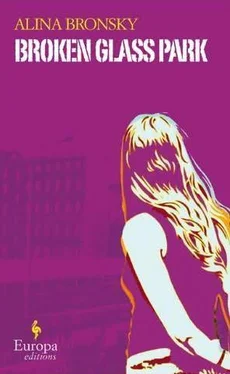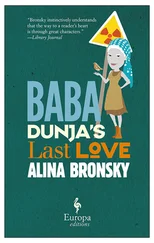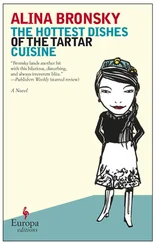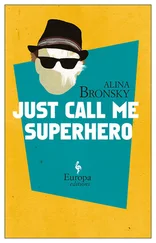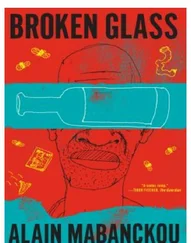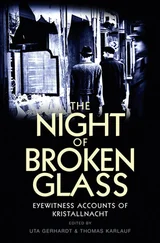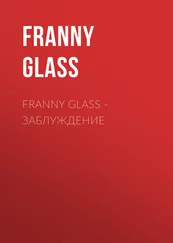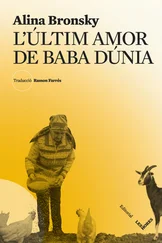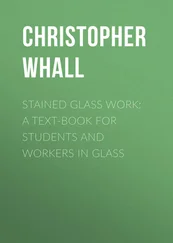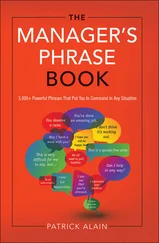“You don’t have a car,” said my brother Anton — and he was right.
“I can’t get at him at the moment anyway,” I said. “You know he’s still in prison. He’ll be there for years.”
“Is that how long it’s going to take?” said Anton.
“Yeah,” I said, “but it’s better that way — I’ll have plenty of time to plan it out. It’s not that easy to kill somebody when you’ve never done it before, you know.”
“It’ll be easier the second time around,” said Anton like an expert.
“I just want to pull it off this one time,” I said. “I don’t want to make a hobby out of it.”
I was relieved that Anton also thought it was a good idea. Vadim is his father, after all. But the little guy hates him just as much as I do. Maybe even more. He had already been a basket case beforehand, because unlike me he was always afraid of Vadim.
These days Anton’s still in bad shape, showing no signs of improvement, and I sometimes ask myself whether all the therapy will do any good at all. He stutters, can’t concentrate in school, wets his bed, and starts to shake whenever someone raises their voice. All this despite the fact that he claims not to remember anything. I always tell him: count yourself lucky if that’s the case. I’m happy I can’t remember anything, either — even though I was there.
I can discuss one of my dreams with Anton. But not the other one. Because anytime the word “mama” is mentioned in his vicinity, he freezes and just sits there dead still like a statue — as if he’s just been kissed by the Snow Queen. My mother often read us the fairytale of the Snow Queen. She loved Hans Christian Andersen, loved that story in particular. Whenever somebody was mean, she would say they probably had a piece of the mirror in their eye or heart — she meant the mirror from the Snow Queen, the one the evil troll shattered. That’s just how she was.
To shield him, I smack anyone who says the word “mama” in front of Anton. Not adults, obviously — I just shout at them. It always works. It’s the least I can do for my little brother. Well, that and not chasing him out when he comes crying to my room at night, crawls into bed next to me, and then is so frightened when the alarm goes off in the morning that he pisses on my leg.
I sometimes worry what it will be like after I’ve fulfilled my first dream and Vadim is dead.
When I was younger, I thought I wanted to be famous, just like everybody else on the planet. I didn’t have anything against the idea of having a well-known mother, either, who smiled from the cover of every magazine and was the talk of the town. But then when we did become known, I could have shot them all — all the photographers and cameramen and the reporters with their microphones and little notepads, filming the entrance to our building and knocking on our neighbors’, doors to ask how loud it had been that night. Who screamed, who cried, who ran, and whether Vadim had really said “There’s blood in there, don’t go in,” and “It’s over, get out of here.”
Only when one of us emerged — me or Anton, since Alissa still had to be carried then — would they shut their mouths, shuffle to the sides of the hallway to clear a path for us, and watch us pass out of the corners of their eyes.
I had hoped they would try to talk to me or Anton, because then I would have felt justified in knocking the cameras out of their hands or the teeth out of their skulls. But they wisely steered clear of me — there must have been a toxic cloud hanging over me, like Chernobyl. Then again I figured it was probably for the best that they didn’t ask me questions and that I didn’t react because my mother was always opposed to violence. And she knew exactly what violence felt like.
The next day she was in all the papers. Her first name and the first initial of her last name — as is the journalistic tradition here — along with her age and a photo. It was a picture she’d had taken with her theater group, a nice picture, her hair red, her face less covered with makeup than usual, a black sweater. Back in those days she’d been a star.
Are you happy now? I asked the picture. Didn’t I warn you? How could you let this happen? Why did you marry that asshole? Why did he get to come with you to Germany? Why in the hell did you let him into the apartment that night?
Why? For god’s sake why?
You were always a stupid, stupid, stupid woman, I said to her. But how could you do this to me — how could you possibly have been so dumb?
Later I apologized to her. Obviously it wasn’t her who had done this to me. She had just acted the way she always did — she couldn’t help it. She was, after all, an art history student and an artist to boot. She was of an archetype that doesn’t really exist anymore — a bit more cosmopolitan, a bit more skilled, a bit more refined. And I’ll explain that in my book so everyone knows it. I don’t want her to be famous only because she died such a horrid death.
Right from the beginning, I read all the newspaper reports. I would always run down to the newsstand and buy copies of all the papers they sold there. The first few days we weren’t at home — the department of family services put us up in an apartment owned by the city. But after two days I told them we couldn’t take it anymore. The apartment was completely free of dust, of books, of life. And there was a plastic plant. I said the little kids wanted to go home. It was most important for Alissa. She wasn’t even two years old.
We were permitted to go home, where everything was oddly clean in a way it had never been before. We were looked after around the clock by several indistinguishable women with short hair and hyphenated names, and one man with long hair — who also had a hyphenated name.
I can barely remember those days. I just know I talked nonstop about how we had done things before and how we needed to keep doing them that way now. How they shouldn’t buy any food other than the things we were already used to. Then one day there was organic butter on the table, and I just had a complete breakdown.
I can still remember the look one of the women gave me as I fell screaming to the floor. There was relief in that look. They had been droning on for days about how I didn’t need to keep it all inside. How I could give my feelings free rein. Vent. I needed to, in fact.
But I didn’t listen to them.
And then suddenly Maria arrived. Cousin twice-removed, with three overstuffed suitcases brought from Novosibirsk. A chance for the traumatized children to form a family again.
Vadim’s cousin, by the way.
I had agreed to her coming — after the experience in the family services-owned apartment, I had an allergic reaction to the idea of entering any kind of institutional facility. And foster parents weren’t exactly lined up around the block to take in three emotionally fucked up urchins of Russian origin. Or to move into the apartment where the half-orphans were huddled in the freshly vacuumed corners like frightened rabbits. The apartment with the door that had recently had more pictures snapped of it than Heidi Klum.
So Maria it was.
Maria is in her mid-thirties but looks fifty. She used to work in a factory cafeteria in Novosibirsk. Maria has calloused hands as big as shovels, with nails painted red. She has short hair, dyed blond and permed, thick legs with varicose veins — though you can’t see them under the wool stockings she wears. She’s got a dozen floral-print dresses, an ass so wide you could land a helicopter on it, perfume so sickly-sweet it makes you sneeze, a big mouth ringed with red lipstick, chipmunk cheeks, and little eyes.
Kind eyes. In fact, she’s nice in general, Maria.
Alissa took to her immediately — boom, just like that. Maria this, Maria that. Mascha, mine, ma-ma-ma-Mama. I wasn’t upset with her about it — she’s just a little kid.
Читать дальше
